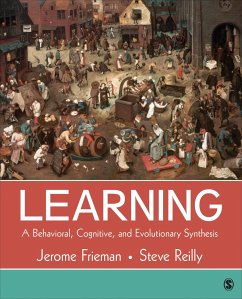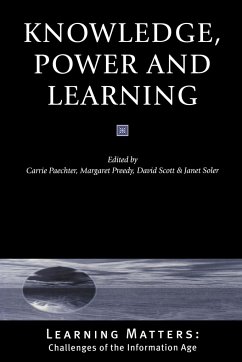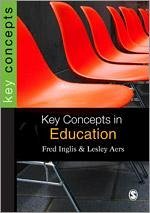Nicht lieferbar

Learning
A Behavioral, Cognitive, and Evolutionary Synthesis
Versandkostenfrei!
Nicht lieferbar
Current research on learning reflects three themes: a methodological behavioral theme that focuses on how certain experiences lead to changes in behavior, a cognitive theme that focuses on how experiences are represented in memory, and an evolutionary/adaptive behavior theme that focuses on the various kinds of learning as adaptive specializations that evolved through the mechanism of natural selection. Frieman and Reilly interweave these themes to present an integrated and coherent account of the current state of knowledge within the study of learning. The evolutionary/adaptive behavior theme...
Current research on learning reflects three themes: a methodological behavioral theme that focuses on how certain experiences lead to changes in behavior, a cognitive theme that focuses on how experiences are represented in memory, and an evolutionary/adaptive behavior theme that focuses on the various kinds of learning as adaptive specializations that evolved through the mechanism of natural selection. Frieman and Reilly interweave these themes to present an integrated and coherent account of the current state of knowledge within the study of learning. The evolutionary/adaptive behavior theme is the central theme within which the cognitive and behavioral themes are developed. The authors tell a story rather than providing only a survey of research and theoretical controversies. Experimental designs, the implications of what we learn from laboratory research for understanding human behavior, and the relationship between learning and other psychological constructs like motivation, perception, and memory are discussed where appropriate and not consigned to separate chapters. Likewise, the historical development of ideas and procedures is woven into the narrative and not confined to a single chapter. The authors' overriding goal is to show those students who may never take another course in learning that this topic is interesting and important for their understanding of both human and non-human animal behavior.







